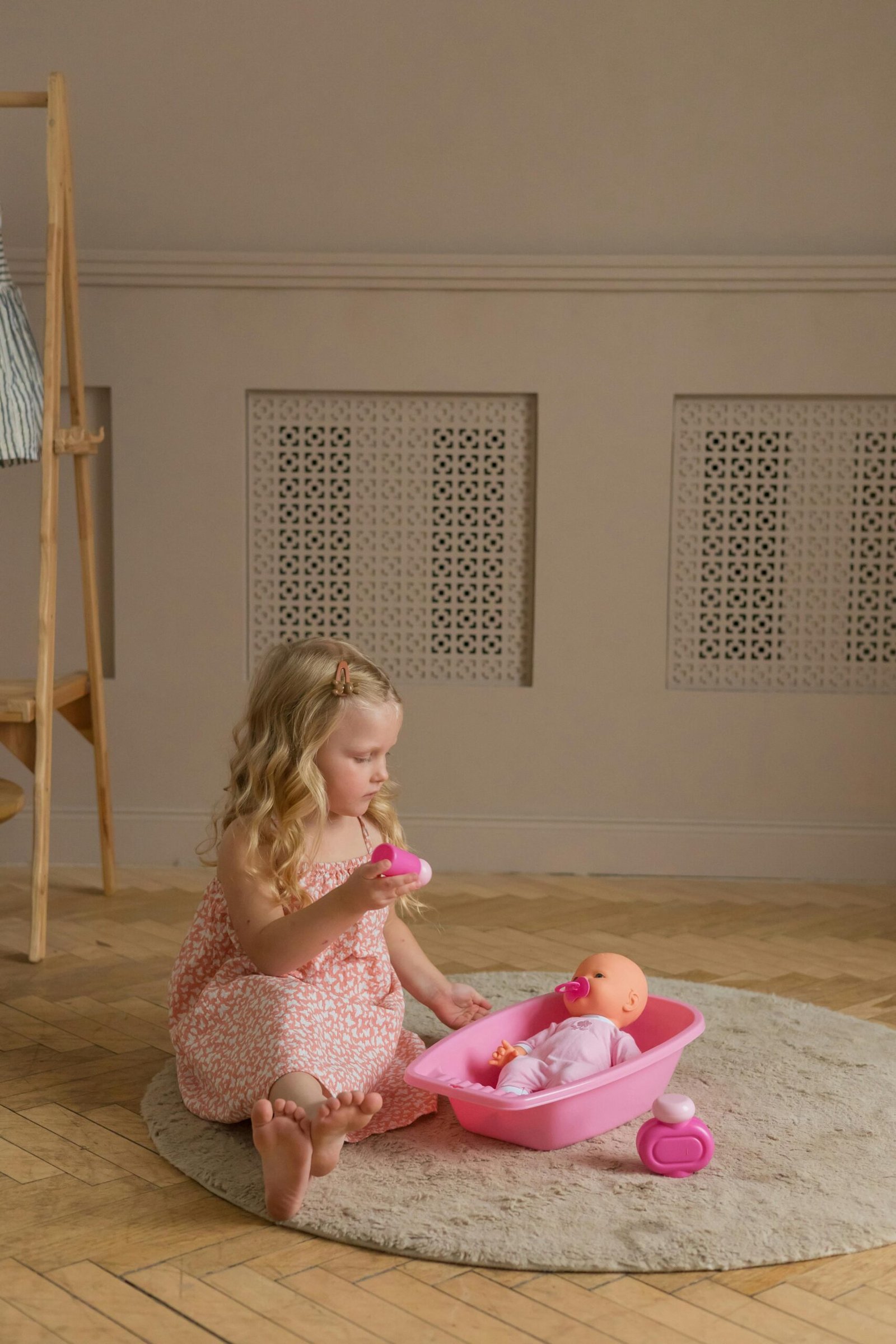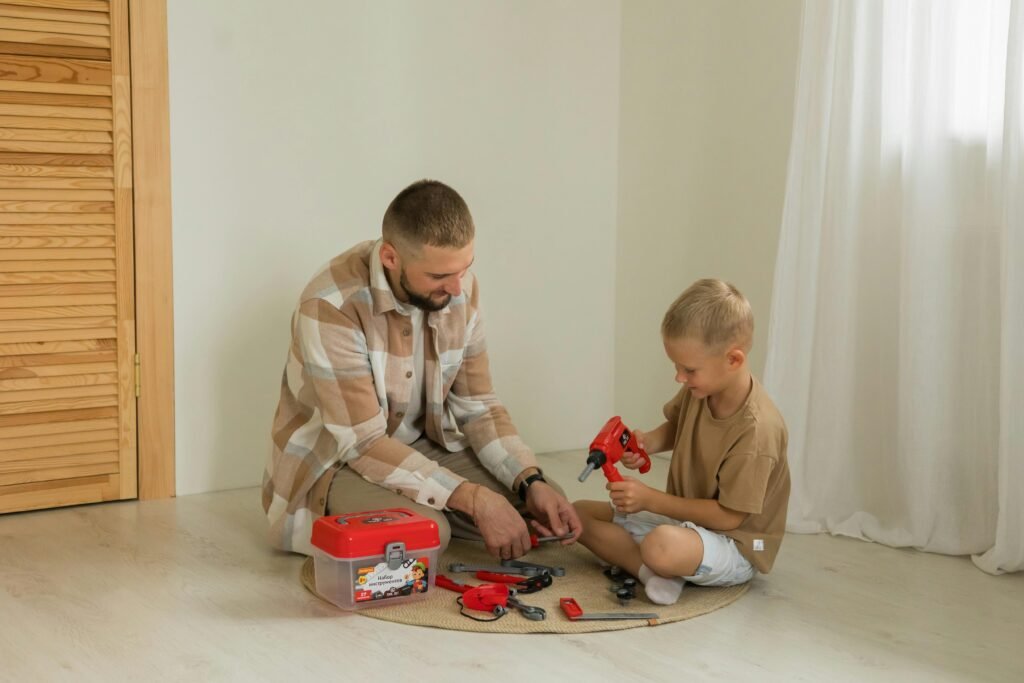Ever found yourself wondering if your child is secretly the CEO of a powerful underground negotiation cartel? And you, my dear parent, are merely an employee desperately trying to clock out of endless rounds of “because I said so”? Fear not. There’s a book for that, and no, it isn’t written by your toddler’s latest toy hero. It’s called “Easy to Love, Difficult to Discipline: The 7 Basic Skills for Turning Conflict into Cooperation Eas,” and yes, we’ve met that title and its alternative readings.
This image is property of Amazon.com.
What is This Magical Manuscript?
“Easy to Love, Difficult to Discipline” is a book, not a magic wand—let’s get that straight. Written by Becky A. Bailey, Ph.D. (who owns more educational titles than summer blockbuster heroes own capes), this self-help paperback aims to arm you with seven powerful skills that’ll make handling your child’s antics feel like you’re the protagonist of a satisfying “parenting triumph” montage.
Behind the Black and White Cover
Why black and white? Because parenting apparently offers enough colors (all 50 shades of messy and chaotic) that we definitely don’t need them on book covers too. But, let’s not judge this literary beast by its monochrome sheath. This book does what it says on the tin: it teaches you to love and discipline with the apparent ease of baking a soufflé on your first attempt. Spoiler: It’s a bit more complicated than that.
[aiwm-amazon-card title=”Easy to Love, Difficult to Discipline: The 7 Basic Skills for Turning Conflict into Cooperation Eas Paperback – Black & White, December 24, 2001″ image_url=”https://m.media-amazon.com/images/I/81XGFPpErnL._SL1500_.jpg” product_url=”https://www.amazon.com/dp/0060007753?tag=ledlightin05e-20″ original_price=”18.99″ discounted_price=”9.04″ currency=”USD|$” availability=”In Stock” disclaimer=”As an Amazon Associate, I earn from qualifying purchases”]
The Science Behind Bailey’s Promise
You might ask, “Is there science in this, or is it another incantation from the parenting grimoire?” Rest assured, Dr. Bailey grounds her suggestions in actual neuroscience and psychology. This isn’t just Oprah-approved meditative humming—it’s brain facts. Imagine a manual that uses science not just to understand your child but yourself too. Yes, you come under the parenting microscope here as well.
Table: The 7 Basic Skills Breakdown
| Skill Number | Skill Name | Description |
|---|---|---|
| 1 | Composure | Practicing adult behavior-management before teaching kids how to manage theirs. |
| 2 | Assertiveness | Politeness doesn’t equal permissiveness; assertiveness teaches children clear boundaries. |
| 3 | Encouragement | Beyond participation awards—real encouragement builds authentic self-esteem. |
| 4 | Choices | Teaching children to make decisions, even when ‘carrot or stick’ isn’t an option. |
| 5 | Positive Intent | Rewiring brains from seeking blame to understanding motivations. |
| 6 | Empathy | Igniting the power of wearing others’ Velcro sneakers to understand different perspectives. |
| 7 | Consequences | Engaging in consequences that teach—not just punish. |
This image is property of Amazon.com.
The Method to the Madness
Let’s face the chaos head-on. Dr. Bailey offers insight into transforming a household that feels more like a WWE ring into one closer to an Oprah Winfrey calm zone. The “7 Basic Skills” operate much like life skills-learned over time and often hardest learned during dinner with the in-laws during a toddler tantrum. The book encourages you to rewire your responses—and as you’ll find, that’s half the battle.
Composure: Keep Your Cool
This skill focuses on how you keep cool when your child goes nuclear over a missing chicken nugget. “Composure” trains you to control your responses, even when your child summons ancient screaming techniques. The art of not yelling back, something we all thought only possible in utopia, is built on practices so essential you’d be convinced you were becoming a Jedi.
The Assertiveness Accord
Once you’ve mastered not losing your marbles, Assertiveness will teach you to draw those magical lines in the sand. It’s all about articulating clearly, confidently, and with conviction—a version of yourself that doesn’t do their bidding just because the word “please” was neatly tied to the tantrum.
Encouragement vs. Empty Praise
There’s a difference between “A for Effort” praise and genuine encouragement. The book steers parents away from the obligatory “gold star” system toward a developmentally nurturing form of motivation. It’s crafting recognition that fosters real, lasting confidence. Teach your child how to fish for inner respect, and maybe let them think they caught a shark.
The Kingdom of Choices
In “Choices”, Dr. Bailey suggests you hide behind the velvet curtain, Wizard of Oz style, as your kid navigates autonomy. Choices allow them to understand consequences without you having to imply lifelong grounding for refusing broccoli. It’s about making structured decision-making opportunities as appealing as Saturday morning pancakes.
This image is property of images.pexels.com.
Positive Intent: The Glass Half Full
“Positive Intent” is a personal growth strategy in disguise, made to transform how you perceive your child’s actions. Instead of quick judgment, it encourages dissecting every eye roll and door slam to glean the ‘why’ behind behavior. Perhaps your angsty teen’s monosyllabic grunt isn’t disrespect, but hunger for pizza—a straightforward solve, indeed.
Empathy: Walking a Mile in Tiny Shoes
Empathy is more than just a nice sitcom theme; it’s a strategy. Dr. Bailey invites you to metaphorically slip into your child’s less-than-size-12 shoes to determine their needs. Maybe a calculated lookalike makeover or grabbing a game controller might put you in their world.
Consequences: The Authentic Way
The final skill emphasizes constructing consequences that are proportionate and directly linked to the offense. Think pothole versus sinkhole in size and impact. Dr. Bailey reminds us not to Jedi-mind-trick them into behaviors with threats of your Halloween candy overdraft.
This image is property of images.pexels.com.
Others’ Verdicts: Accolades and Anecdotes
Without spoiling your cliffhanger here, opinions on “Easy to Love, Difficult to Discipline” vary. Most parents find the book a refreshing change from the age-old “spare the rod” method. Comment sections from far and wide beam with praise for its practical applications. Essentially, it empowers parents to pick up the developmental lightsaber and challenge behavior, adjusting roots rather than just trimming branches.
The Balancing Act of Implementation
The trick with Bailey’s strategies is incorporating them into the daily mess without sounding like a broken audiobook. Practice makes perfect, as does making mistakes and hearing the words “I’m sorry” from your mouth more than you’d like.
Is It Trending? Cultural Context
Parenting trends come and go faster than sandbox fad toys, but Bailey’s approach is part of a broader movement toward mindful discipline. The principles of her methodology are touted by those who understand the toddler-angst crossroads better than most modern superhero films understand plot lines.
In conclusion, while the title might lead you through loops more dizzying than a theme park teacup ride, the inside contents of “Easy to Love, Difficult to Discipline” equip you with skills that fall somewhere on the line between enlightenment and wizardry. It’s a book that’s simultaneously therapeutic and instructional—vitally, it gives you footing on the parenting seesaw rather than just a can of WD-40 and a cheerful thumbs-up. So, get out there and try turning family squabbles into cooperation—who knew such a thing could actually be orchestrated?
Discover the latest books on parenting teenagers as well as tips and tricks on how to cope with your teen while keeping your mental health intact.
Disclosure: As an Amazon Associate, I earn from qualifying purchases.














0 responses to “Easy to Love, Difficult to Discipline Review”